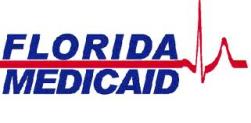 Florida’s Medicaid program has decided to pay for an extraordinarily expensive new treatment for hepatitis C — but only for the sickest of patients.
Florida’s Medicaid program has decided to pay for an extraordinarily expensive new treatment for hepatitis C — but only for the sickest of patients.
Ideally, the blockbuster drug Sovaldi would be available to everyone diagnosed with hepatitis C. After all, the disease is terrible, highly contagious, and Sovaldi promises a cure rate of above 90 percent.
In Palm Beach County, hepatitis C is so widespread that nearly 1,900 people were diagnosed with it last year. Florida’s Medicaid program is aware of over 20,000 recipients living with hepatitis C.
But making Sovaldi available to everyone on Medicaid who needs it now would cost the state over $1.6 billion, and so it’s restricted.
Blame greed. Greed from the drug industry, and greed from members of Congress who are so beholden to pharmaceutical industry campaign cash that they won’t consider allowing Medicare Part D plans to negotiate for better drug prices, as other countries do. Medicare’s rates become the basis for everyone else’s rates, and so this drives up health costs across the spectrum.
In the United States, a 12-week course of Sovaldi costs $84,000. But in Canada or Europe, it’s only $55,000. In Egypt, it’s just $900.
That’s according to testimony from Dr. Steven Miller, chief medical officer for pharmacy benefits manager Express Scripts, speaking at a June 11 Congressional hearing.
This bit of corporate welfare is the legacy of President George W. Bush’s Medicare Part D plan, and President Obama’s bad bargain to win the drug industry’s blessing of the Affordable Care Act.
Sovaldi is a true medical breakthrough. It prevents the hepatitis C virus from replicating, resulting no detectable virus for most people. It was discovered at a New Jersey biotechnology company, Pharmasset, which was bought by Gilead Sciences, of Foster City, CA.
The drug industry warns that setting Medicare free to negotiate prices could kill such drug discovery innovation. But Miller convincingly argues that saving Medicare money could allow more to be spent on government-funded research for cures.
The hepatitis C virus is spread through IV drug use, pre-1992 blood transfusions, dirty tattoo techniques and in some cases, sex. It now kills more people in the United States than AIDS.
The virus causes scarring, cirrhosis, and cancer of the liver, making it a leading reason for liver transplants.
Gilead Sciences has priced Sovaldi at what it believes the market will bear, apparently comparing it to the cost of needing a liver transplant.
This strategy has worked beautifully for the company in the short term. In the first three months of 2014, Sovaldi broke all records by earning Gilead $2.3 billion.
But Gilead’s short-term gain may become the entire drug industry’s pain. Perhaps it will be a wakeup call.
What do you think? Should Congress free Medicare to negotiate drug prices?
This post was originally published on The Palm Beach Post’s The Opinion Zone and is reprinted with permission.







Comments
Comments